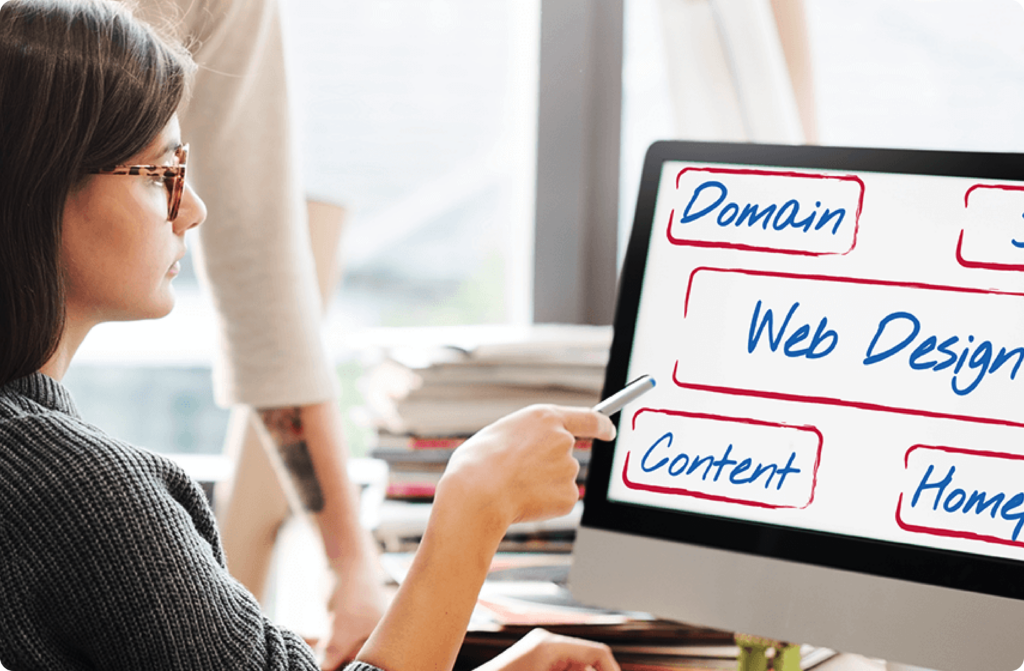The 15 Most Important Things Every Small Business Website Needs

There is more attention online today than there ever has before, and because of it, companies are placing a priority on having a quality website. Your website is where your small business either lives or dies. If your website is equipped with the right features, it can be a central hub where a consistent flow of leads turns into quality customers.
The online world changes fast. The good news is that in this article we’ve detailed the must-haves for every small business website. There is a lot to cover when it comes to the most important website features, so let’s dive right in.
1. A Simple Domain Name and Web Address
Domain names and web addresses are some of the first things visitors see when they find your website. Long and complicated domain names tend to be “too much” for visitors to remember. On the other hand, simple domain names tend to leave a lasting impression on the viewer, giving another chance for your business to be remembered later. Your domain name and web address should be simple, straightforward, and easily rememberable. This will make it easy and quick for potential customers to type in your web address and find you.
2. A Clear Description of Who You Are
Your site visitors should be able to tell exactly what it is you do, who you serve, and where you operate, all from the landing page. This should be shown through quality graphics and short, informative copy. It’s also essential for small businesses to have a separate page that does a deep dive into what it is they do.
3. An Easily Navigated Site Map
Your business probably has a lot to offer, but your customers will never get to take advantage of your services if they can’t find them. A site map connects all the most valuable parts of your website – it’s essential to formulating a professional website and high-quality customer experience. Site maps can be difficult to build on your own, so don’t be afraid to reach out to a web design expert for help.
4. Friendly Mobile Responsiveness
Chances are that your customers visit your website more frequently from their smart phones than their laptops or desktops. Websites are navigated differently from mobile devices as opposed to a laptop or desktop, so it’s important to design your website for both uses.
5. Lightning-Fast Loading Speeds
The fastest way to send your customers to a competitor is with slow loading times. People just don’t have the patience anymore. Working with an expert in web design and UX design can dramatically help speed up those loading times and increase your customer retention rates.
6. Easy-to-find Contact Information
To convert as many leads to real clients as possible, you’ll want to make sure you promote your contact information in all the most important places of your website. To make your information as easy as possible to find, make sure you ink it throughout your website and at the bottom of every page.
7. Customer Testimonials
Social proof is key for the long-term success of every business, no matter the industry. It’s one of the many ways you can reassure the customer that they are buying the right product or service. Make sure your customer testimonials and reviews are plentiful and easy to access.
8. An Obvious Call to Action
Sometimes customers just need that final push! Your marketing funnel has led them all the way to your website, so make sure you have the proper call-to-action links, channels, or buttons set in place and easy to find.
9. Quality Search Engine Optimization
SEO plays a major part in how all businesses find their customers. You’ll want to ensure that your website is updated with all the most competitive keywords and phrases to allow for maximum search engine optimization.
10. Fresh and Quality Content
The content on your small business’s website will be one of the first things customers see. To leave a lasting impression and show them the dedication you have to your service, be certain all your images and copy are of a high quality. It’s also not a bad idea to freshen up your website content on a regular basis.
11. Links to Social Media Pages
Social media is a huge part of business nowadays. Platforms like Facebook, Twitter, Instagram, and YouTube provide a great way for your company to showcase its products and services. For this reason, your social platforms should be fully integrated with your company website.
12. High-Quality Logo
This one is a no-brainer. For many businesses, their logo is the number one visual that customers will remember. You want your logo to accurately display what your brand stands for. It should serve as a visual link between customers and your business.
13. A Secure Hosting Platform
Your website is your business’s online home. The last thing you would want to have happen is to put in a bunch of effort into building your company’s website just to lose it. In protecting the security of your site and all its data, you can’t afford to not have a secure hosting platform.
14. A Design and Style that’s Friendly to Online Readers
You want your site to be easily navigable so customers can smoothly find their way from the landing page to checkout. It sounds easy, but can require a lot of effort in UX (user experience) and UI (user interface) design. To keep up with the most effective and efficient features for UX/UI design, don’t be afraid to reach out to an expert.
15. A Customized Website Maintenance Plan
To maintain high traffic and optimal conversion rates on your website, you’ll want to have a good maintenance plan in place. Partnering with a web maintenance professional can ensure your site stays fast, secure, and optimized for your business’s best interests.
Ready to Optimize Your Website?
It can seem difficult to make sure your website is updated with all the correct features, but with the right help and information, anyone can craft a standout website for themselves! If you’re ready to take the quality of your small business’s website to the next level, reach out today.


